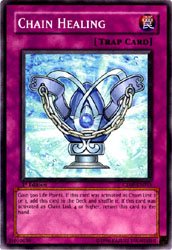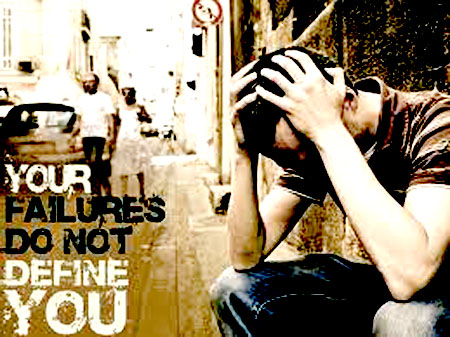When Therapy Fails
ther·a·py (n)
1. the treatment of disease or disorders,
as by some remedial, rehabilitating, or curative process.
2. a curative power or quality.
I talk a lot here about healing. I hope that how much I love the opportunity to help a person heal comes through these words every other week. It is truly a humbling, sometimes terrifying, honor to be able to meet a person at a crisis point in their life and help them find, and then walk, the brighter path of their choosing.
But sometimes they can’t find it. Or they won’t walk it. Though the prognosis changes, the job of the psychotherapist remains the same; you must look that ugly truth in the face, without flinching, and make your call. The sadness of a kid who doesn’t heal must be embraced and dealt with the same as if it were the sadness of abuse, trauma, loss, or the backlash of a perpetrated crime. The difference is that dealing with the state of an unhealed kid doesn’t lead to what the kid’s family or caseworker—or especially the kid—see’s as a successful discharge.
We’ve Made it a Verb
If you, or someone you know has never needed a residential addiction, behavior or mental health program then it’s doubtful that you’d know the abbreviation F. T. A. You also wouldn’t know that, in such circles, the abbreviation has become a word in itself, pronounced “Efteeyay.” It stands for “Failure to Adjust” to treatment. Some of its more common definitions are as follows:
F.T.A. (n) (Family Definition)
1. The state of always F’ing up, that just happened again.
2. My child is never going to change.
3. I’ve failed, too.
4. The condition of continued pain, paperwork and court or insurance company contact.
F.T.A. (a) (Caseworker, i.e. DHS, CYS, DYFS Definition)
1. Describing a child who has a complicated or frustrating case.
2. The title attributed to a case that “just won’t get it.”
3. (n) The state of frustration involving increased phone calls and paperwork, as in “great, another F.T.A.!”
F.T.A. (v) (Kid Definition)
1. Escape as in “I’m F.T.A.’d; I’m getting out of this s— hole!”
2. The act of not having to tell what really happened, as in “Just FTA me!”
3. Demonstrating that nothing’s wrong with me, it’s this place, my family or my caseworker that has the problem.
It All Falls Apart
“The only real failure in life is the failure to try.”
-Anonymous
There are many variables which lead to an F.T.A. determination, but most of them return to three categories; Desire to Change, Severity of Disorder and Appropriateness of Method.
 Within the Desire to Change, some of the things that we look at are how long the behaviors have gone on, how entrenched they are into the self-perception, how many real-world consequences have occurred as a direct result of the behaviors and how solid the person’s view of a life without the disorder has become. The possibility that a kid may fail to adjust to treatment rises if they’ve had little real-world consequences, have no concrete view of a life free of those consequences, or are totally entrenched within their negative self perception.
Within the Desire to Change, some of the things that we look at are how long the behaviors have gone on, how entrenched they are into the self-perception, how many real-world consequences have occurred as a direct result of the behaviors and how solid the person’s view of a life without the disorder has become. The possibility that a kid may fail to adjust to treatment rises if they’ve had little real-world consequences, have no concrete view of a life free of those consequences, or are totally entrenched within their negative self perception.
The Severity of the Disorder is the most complex one to read in the person’s presentation. Sometimes it’s blatant—the person simply can’t control their behaviors, be they violence against others, harming themselves, destroying things or other, more bizarre actions. Sometimes it’s the exact opposite. The person is so over-controlled, so shut down, that they seem well adjusted. Then they blow the walls out and look at you like they’re just taking a mid-day stroll in the sunshine. Severity helps define one main criterion; Can we fix things now, in this setting? I believe that everything is livable somehow. The crucial word in that phrase is “now.” With mental and behavioral health, one needs to be in some way ready to heal, or the attempt at healing can just make things worse.
Appropriateness of Method was already mentioned above when wondering if a therapist can help “fix things now, in this setting.” People respond better to different environments, therapies, program structures and atmospheres. I can recall one kid who—while far from his environment—thought it the greatest reward when we would walk to the end of the program’s driveway to listen to and watch traffic. I can recall another, hardened, violent criminal who sincerely swore that he “ain’t gonna run. These woods scare me,” he said. “I’m gonna get eaten by a deer.” If the method or the program is not the right tool for the job, then it’s not entirely the kid’s fault if things go South.
At Whom Should The Finger Point?
“Success builds character, failure reveals it.”
-Dave Checkett
 I’m blessed to be at a current program in which the blame game isn’t played as much as the attempt to secure the best help for a kid. In some programs, when a patient needs to be deemed a Failure to Adjust, the eyes and the fingers start searching for targets. Was it poor screening at intake? The old “we should have never taken a case like this!” Was it a failing of the outside caseworker? “The (Probation Officer, DHS or CYS worker) never called back for a month, how can the kid think his needs are being met?!” Was it the therapist? “CBT doesn’t work for this disorder! You set him up to fail!”
I’m blessed to be at a current program in which the blame game isn’t played as much as the attempt to secure the best help for a kid. In some programs, when a patient needs to be deemed a Failure to Adjust, the eyes and the fingers start searching for targets. Was it poor screening at intake? The old “we should have never taken a case like this!” Was it a failing of the outside caseworker? “The (Probation Officer, DHS or CYS worker) never called back for a month, how can the kid think his needs are being met?!” Was it the therapist? “CBT doesn’t work for this disorder! You set him up to fail!”
The focus is wrong. I’ve said recently to a caseworker that “we’re doing our best for her. We’re just not certain that our best is the best for her at this stage of her illness.” The patient’s progress should always be the focus. You must know you’re doing your best, and if you don’t know that, then it may be your fault. Work harder until you know you’re doing your best for that kid. Know it, and keep trying it up to and including the point when you say goodbye. Besides that, the finger always points at the patient. No matter if the ultimate reason for an F.T.A. is willful actions or involuntary issues such as setting or method, the only reason a program should determine that a kid failed to adjust is so that they can heal better elsewhere.
Successful Failure
“There are no failures – just experiences and your reactions to them.”
-Tom Krause
 Determining that a kid could heal better elsewhere and failed to adjust to the present program doesn’t mean that the program, the kid, or the therapist is a failure. No, I’m not just saying that to make myself feel better. I’ve worked with kids who’ve been socialized to a violent, self-interested, criminal lifestyle for up to seventeen years. It’s ludicrous to think that three to six months of therapy will heal that. But it will show the kid another way to live and a kindness that they may have never known before. That can be shown, regardless of if the kid fails to adjust. That is a success, especially if that new knowledge creates a hunger for that life and kindness, though they may not be ready to embrace it, or even admit it, at the time. I hope that for every kid.
Determining that a kid could heal better elsewhere and failed to adjust to the present program doesn’t mean that the program, the kid, or the therapist is a failure. No, I’m not just saying that to make myself feel better. I’ve worked with kids who’ve been socialized to a violent, self-interested, criminal lifestyle for up to seventeen years. It’s ludicrous to think that three to six months of therapy will heal that. But it will show the kid another way to live and a kindness that they may have never known before. That can be shown, regardless of if the kid fails to adjust. That is a success, especially if that new knowledge creates a hunger for that life and kindness, though they may not be ready to embrace it, or even admit it, at the time. I hope that for every kid.
Despite what an accrediting agency may say, I consider every discharge to a facility which will meet the immediate needs of the kid as a successful discharge, even if that discharge has an “F.T.A.” stamped on it. Therapy, especially for kids with severe cases, can be a life-long endeavor. Failure, even failure to adjust, provides valuable data for later successes.
To you, therapist, counselor or whatever, I say this: Failure is in the eye of the beholder. I learned quickly that therapy is not made of Good Will Hunting moments. You will not—hardly ever—be the sole change agent for a kid. And you shouldn’t be. You will be a link in the chain of healing. If you gave your best every session, made the best recommendations for discharge, and made detailed notes to pass along, then you didn’t fail.
No one ever likes to deem a case a Failure to Adjust. It is an uncomfortable, sad situation. Yet, I am growing to consider it just another discharge option that moves a kid toward the same, single goal; a better life.



